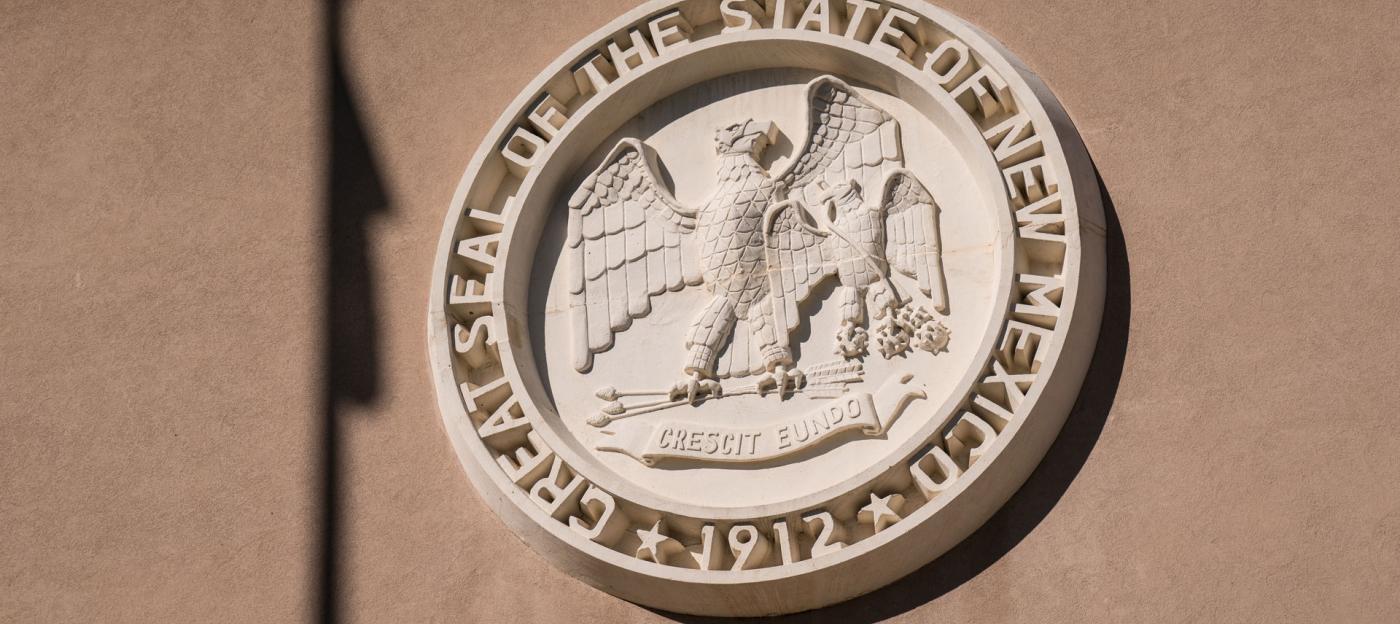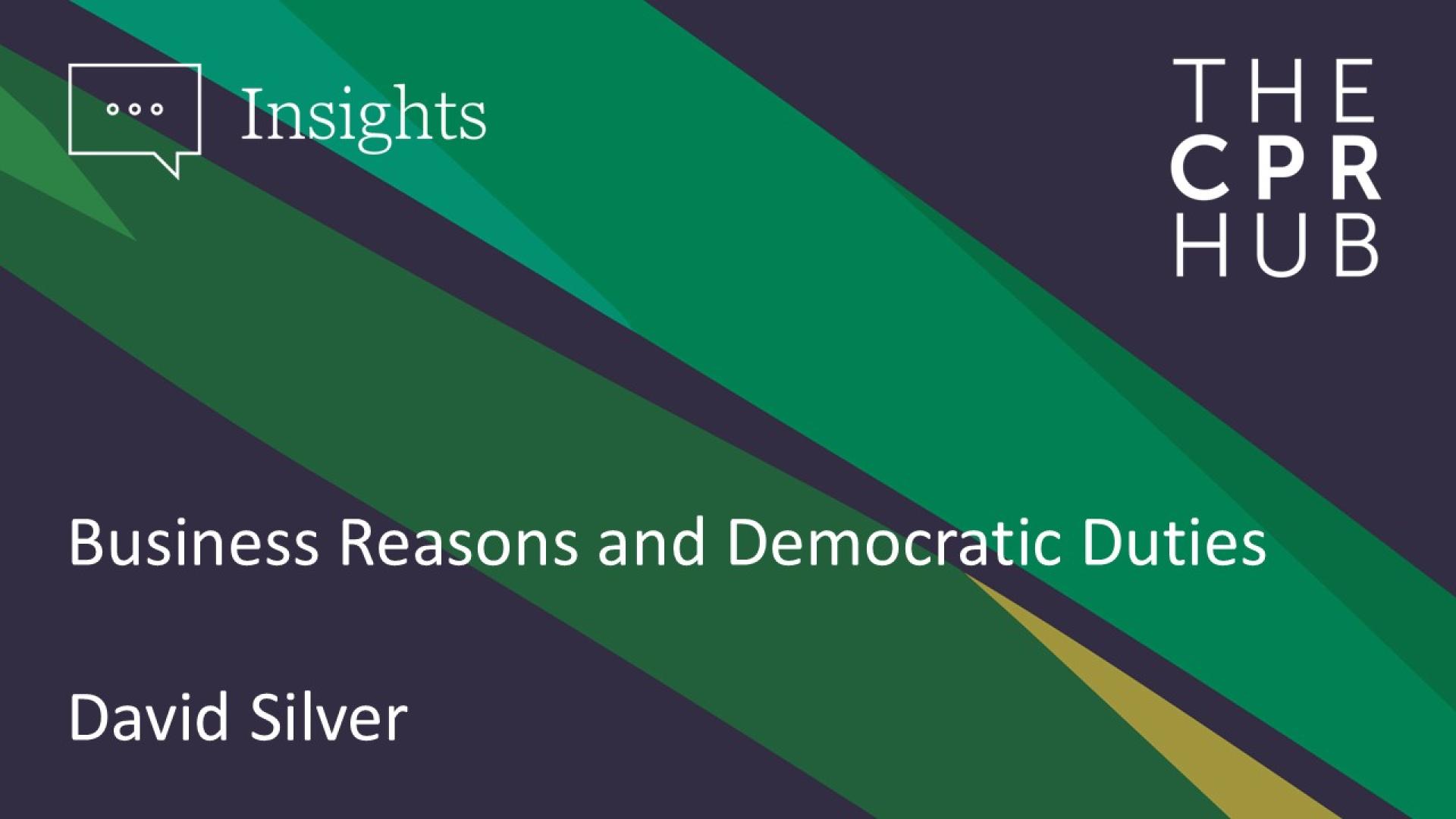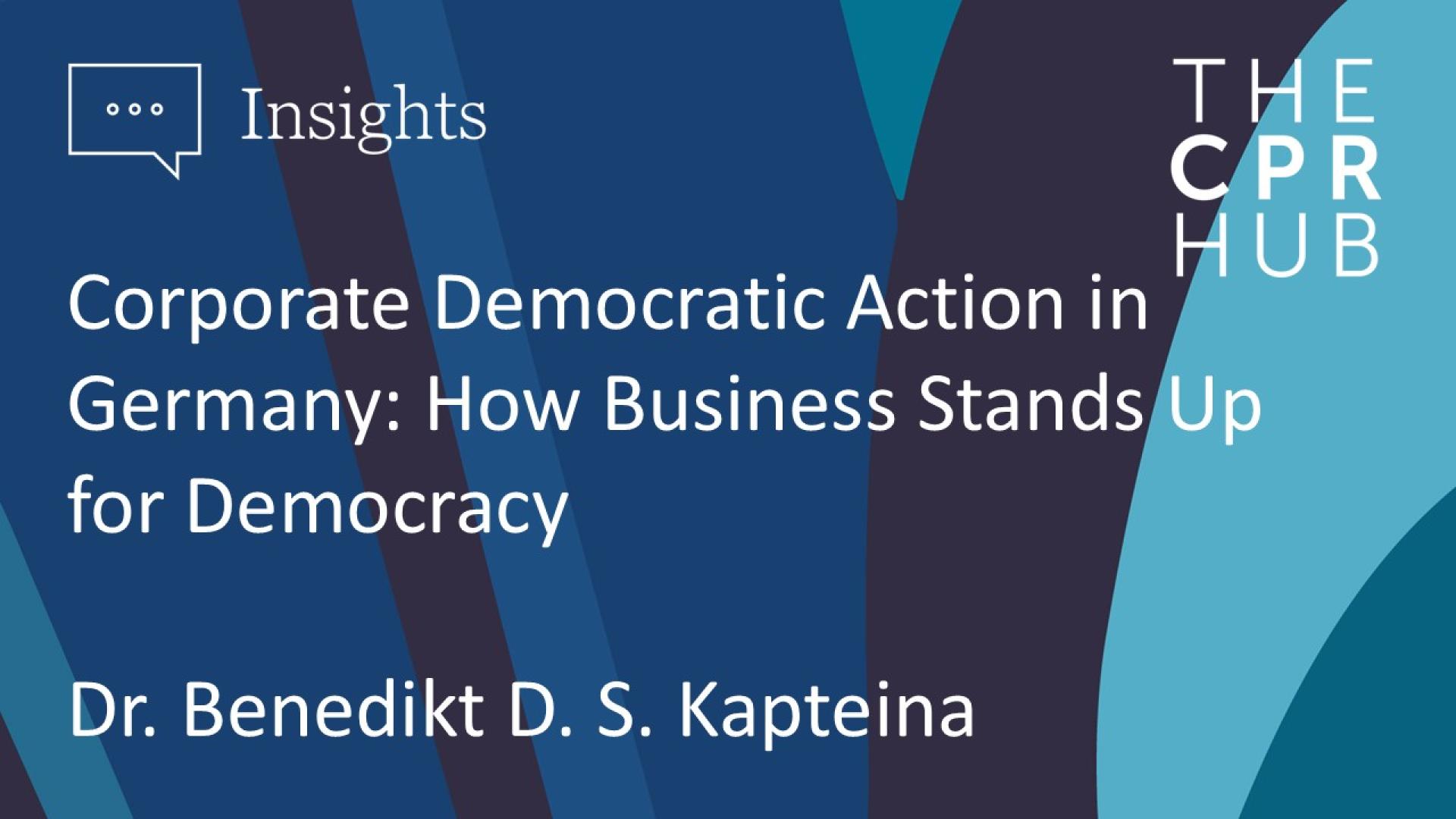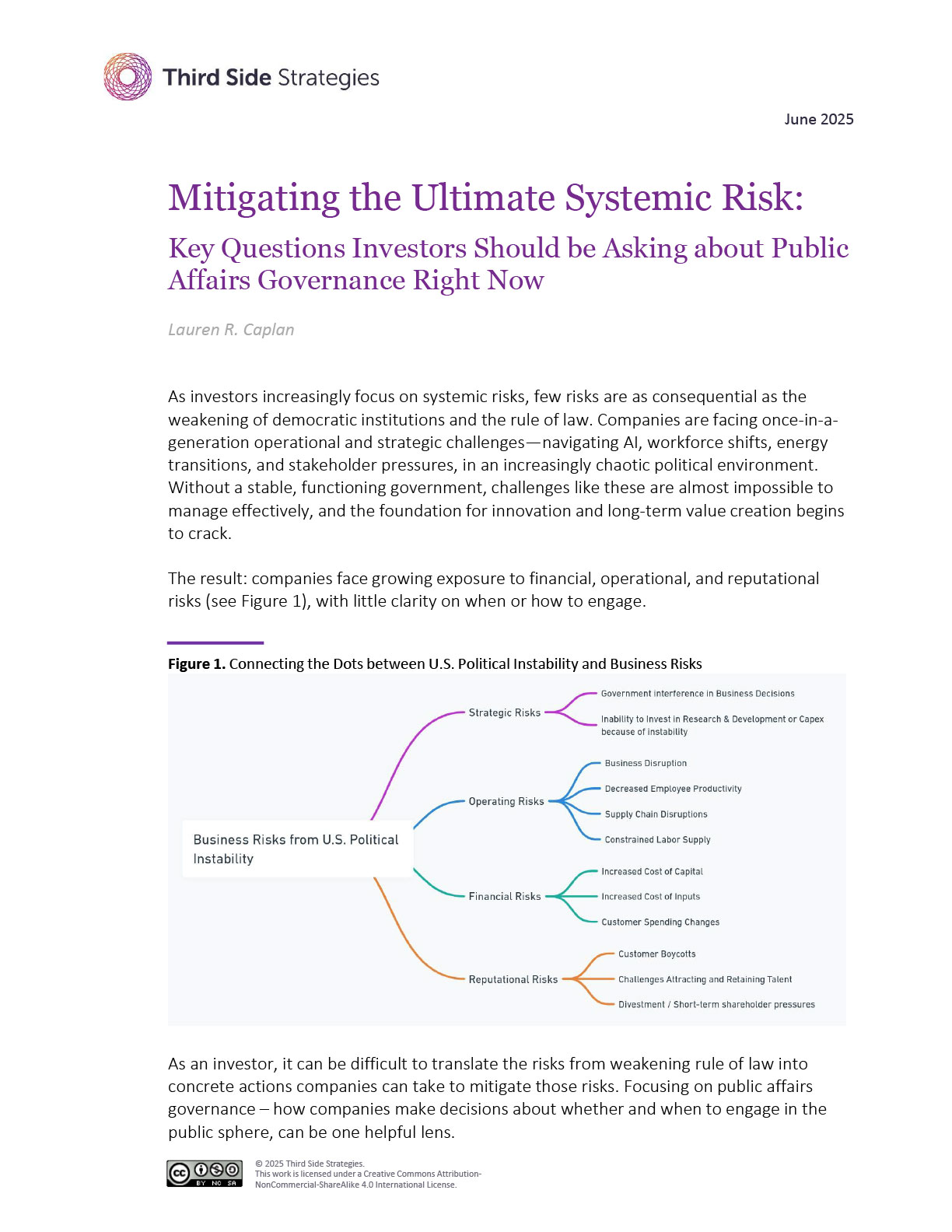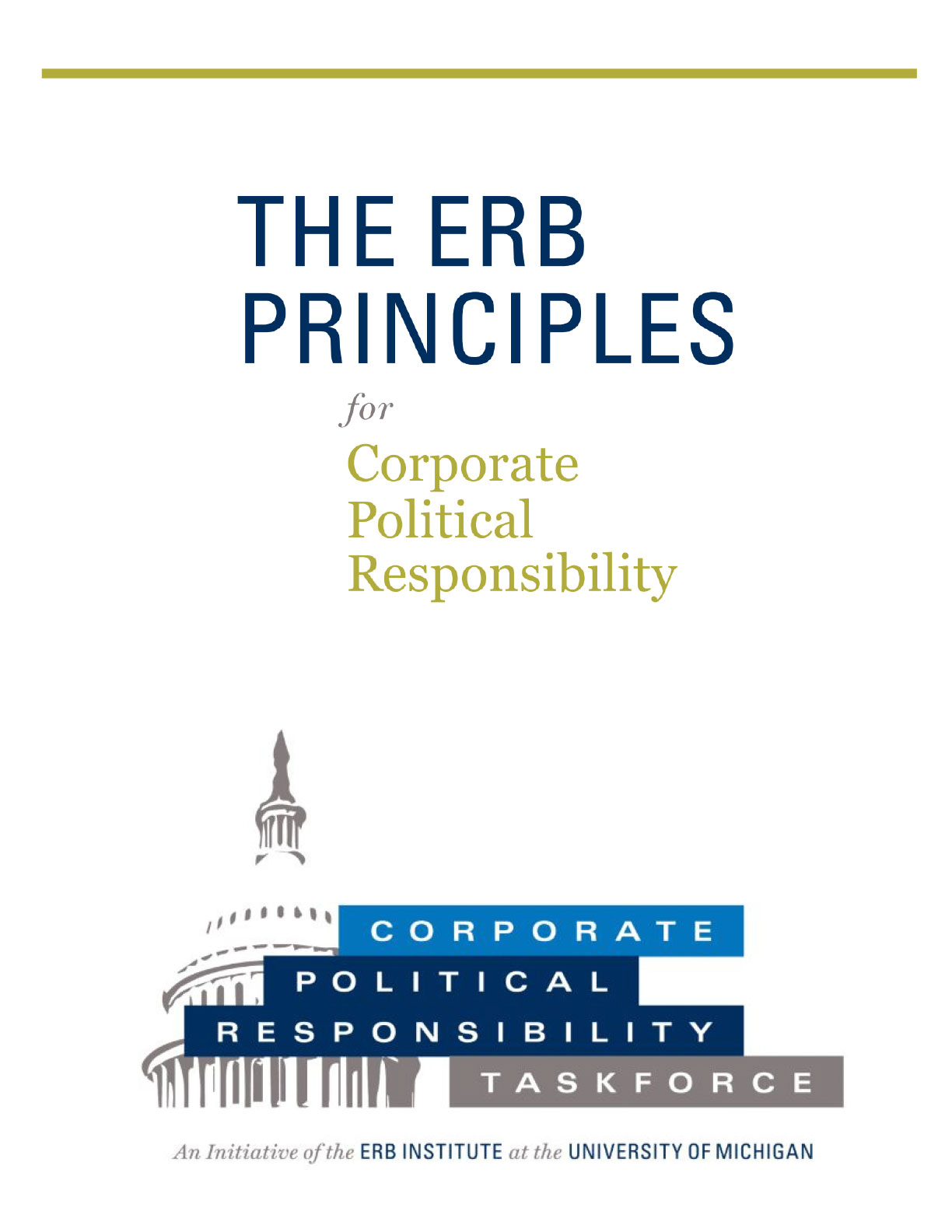About the CPR Hub
The CPR Hub helps companies navigate a hyper-political world by strengthening their public affairs governance practices, featuring emerging best practices, practical tools, and compelling materials for discussing why, when and how CPR Governance might be adapted for a specific company. It is published by Third Side Strategies, a non-partisan action-oriented think tank and non-profit advisory firm.




